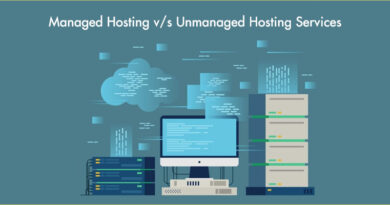Unlocking the Power of CDN Services and Web Hosting
As the digital landscape continues to evolve, the demand for faster, more reliable websites has never been greater. In this era of instant gratification, users expect websites to load quickly and seamlessly, regardless of their location. This is where Content Delivery Network (CDN) services and web hosting play a crucial role. In this comprehensive guide, we will delve deep into the world of CDN services and web hosting, exploring their intricacies, benefits, and impact on the online experience.
The Rise of CDN Services

In the early days of the internet, websites were hosted on single servers, often leading to slow loading times and poor user experiences. However, with the advent of CDN services, this paradigm shifted dramatically. CDNs are distributed networks of servers strategically located around the globe to deliver web content more efficiently to users based on their geographical location.
By caching static assets like images, videos, and scripts on multiple servers, CDNs can reduce latency and improve website performance significantly. This not only enhances user experience but also boosts SEO rankings, as site speed is a critical factor in search engine algorithms.
How CDNs Work

When a user requests access to a website, the CDN’s intelligent routing system directs the request to the nearest server in its network. This server then delivers the cached content to the user, cutting down on the time it takes to load the page. Additionally, CDNs can also provide security features like DDoS protection and bot mitigation, safeguarding websites from malicious attacks.
One of the key advantages of CDNs is their scalability. As web traffic fluctuates throughout the day, CDNs can dynamically adjust to handle increased demand, ensuring that websites remain fast and responsive even during peak periods.
The Role of Web Hosting in Website Performance

While CDNs focus on optimizing content delivery, web hosting plays a critical role in the overall performance of a website. Web hosting refers to the service that provides server space for storing website files, databases, and other resources. The type of web hosting you choose can have a significant impact on factors like speed, uptime, and security.
Types of Web Hosting

There are several types of web hosting available, each catering to different needs and budgets. Shared hosting, where multiple websites share resources on the same server, is a cost-effective option suitable for small businesses and personal blogs. However, shared hosting can lead to slower loading times and reduced security due to resource limitations.
On the other hand, VPS (Virtual Private Server) hosting offers more control and dedicated resources for higher performance. VPS hosting is ideal for growing websites that require more power and customization options. Dedicated hosting, where an entire server is dedicated to a single website, provides the highest level of performance, security, and flexibility.
Choosing the Right Web Hosting Provider
When selecting a web hosting provider, it’s essential to consider factors like uptime guarantees, customer support, security features, and scalability. Look for providers that offer SSD storage, SSL certificates, automatic backups, and a user-friendly control panel for easy management of your website.
Many web hosting companies also offer integrated CDN services as part of their packages, providing a seamless solution for optimizing website performance. By combining reliable web hosting with a robust CDN, you can create a fast, secure, and scalable online presence.
The Future of CDN Services and Web Hosting
As technology advances and user expectations continue to rise, the role of CDN services and web hosting will become even more vital in shaping the online experience. With the proliferation of mobile devices and the increasing globalization of e-commerce, the demand for fast, responsive websites will only intensify.
Advancements in edge computing and AI-driven optimizations are poised to revolutionize the way CDNs deliver content, further accelerating website speeds and improving user engagement. Web hosting providers will need to adapt to these changes by offering more robust features and enhanced security measures to meet the evolving needs of online businesses.
Common Misconceptions About CDN Services and Web Hosting
One common misconception about CDN services is that they are only beneficial for large websites with global audiences. In reality, even small websites can benefit from CDNs by improving their loading times and enhancing user experience. CDNs are scalable solutions that can accommodate websites of all sizes and types.
Another misconception is that web hosting is a one-size-fits-all service. In truth, different websites have unique requirements based on their traffic, content, and functionality. Choosing the right web hosting provider tailored to your specific needs is crucial for maximizing website performance and reliability.
FAQs About CDN Services and Web Hosting
1. How does a CDN improve website speed?
A CDN reduces latency by caching content on servers located closer to the user, delivering web pages more quickly and efficiently.
2. Can I use a CDN with any web hosting provider?
Yes, many web hosting providers offer integrated CDN services or allow you to connect with third-party CDNs to enhance your website performance.
3. Is it necessary to have a CDN for a small website?
While not mandatory, having a CDN can significantly improve the speed and reliability of a small website, leading to better user experiences and SEO rankings.
To Wrap Things Up
In conclusion, CDN services and web hosting are essential components of a successful online presence. By leveraging the power of CDNs to optimize content delivery and choosing the right web hosting provider to support your website, you can create a fast, secure, and reliable online experience for your users.
As technology continues to advance, staying informed about the latest developments in CDN services and web hosting will be crucial for maintaining a competitive edge in the digital landscape. By investing in these foundational elements, you can ensure that your website remains at the forefront of speed, performance, and user satisfaction.




